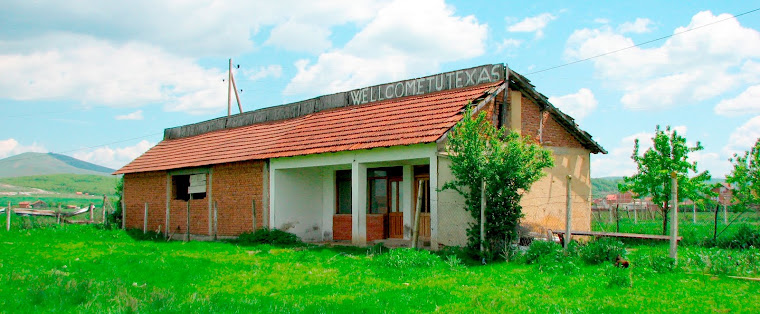Maria Todorova writes about this pretty well. But she makes it pretty clear that us outsiders are not the only ones imagining our version of the Balkans. The people of the Balkans do their fair share of imagining too. Some of them—not all, but some—use the word “Balkan” every bit as negatively as we do, or even more so. I've heard the word thrown around like an insult by people from there. They roll their eyes at the way men act, or the way men drink, or the way women are dressed, or the bad service at hotels, or the traffic jams in villages, or the electricity cuts, or the politics: they roll their eyes and mutter about the “Balkans,” their birthplace.
People have their myths about places, and this is one: that there is something intrinsically hateful, and loathsome, and violent and tribal about the Balkans. Something that made conflict inevitable. We really need that feeling of inevitability to understand things sometimes. We need for the war to be inevitable in order to understand it, like some old old play, some tragedy from the Balkans.
There's a romantic side to these myths too. Angelina Jolie made a movie about the Bosnian war called “In The Land Of Blood And Honey” and in the title she perpetuated a myth that I heard my very first year in Kosovo. The myth goes that the word “Balkan” has its etymological roots in words for “blood” and “honey”. And the reasoning goes that this beautiful land of honey was worth shedding blood over. It's another explanation for the wars, but it's not true. The word “Balkan” doesn't come from those roots. It most likely just comes from a far more pedestrian description of a typical Balkan landscape. But Jolie preferred the romantic inevitability of blood resulting from honey, and many people wrote books perpetuating this notion, and many people in the Balkans believed these books too. It's a little trick we do, all the time, with words: changing the subject to fairy tales so we can stop looking at things we don't want to see. We do the same thing in America too.
A few nights ago I drove home from a dinner party on my scooter, from the Heights through downtown and back to where I live, across the freeway from the heart of the Third Ward. It was a balmy night and, while my friends in Kosovo were still waking up to snowdrifts, in Houston there were thin foggy scraps of clouds passing quickly overhead, and American flags whipping in the wind in front of skyscrapers. Across the bayou from the post office I could see that the fluorescent lights in the ballet rehearsal halls were still on, and valets were forming slow processions in front of restaurants and clubs, exiting the cars at the curb and trading places with their patrons. Down the road a truck had pulled up in front of a ballroom. The lights in the ballroom glowed warmly through the upstairs window, yellow and red and green. White tablecloths were on the tables, and ribbons were wrapped around the chairs. A couple of men were walking up and down the stairs, carrying unlit torches and baskets for tomorrow's wedding, or anniversary party, or awards ceremony. Sometimes I think Houston is one of the prettiest towns I've ever seen. And sometimes I think that's just my imagination. But it's not clear to me whether I will ever be able to tell that imagining and the truth apart from one another.

- t
p.s. I love you, Balkan music. Dear readers, I give you the musical style known as "Tallava." I dare you to look away from this keyboard player.* You can't. Don't lie.
*This man makes a guest appearance in Apocalypse Town.
p.p.s. I love you too, Galveston Bay.

